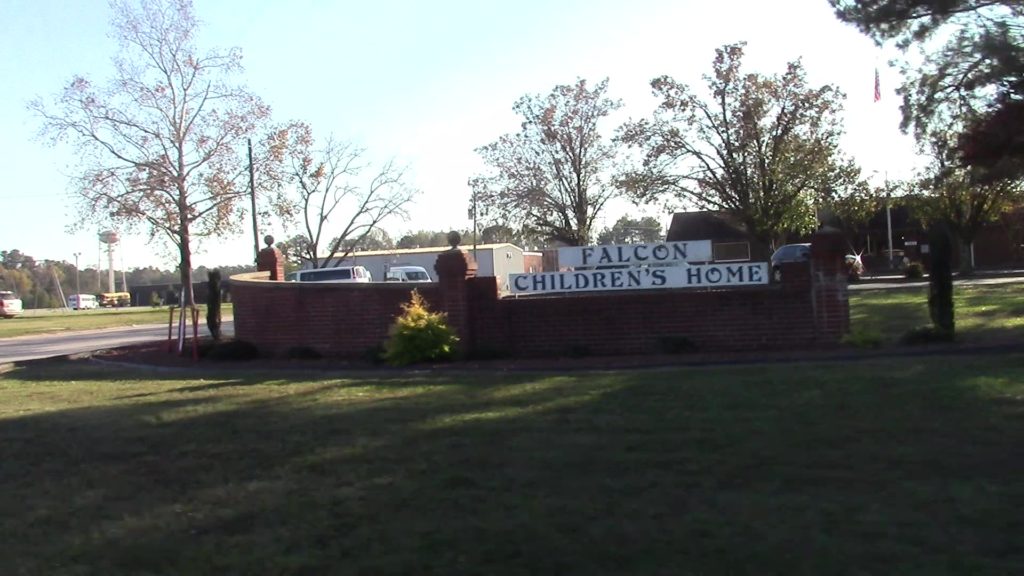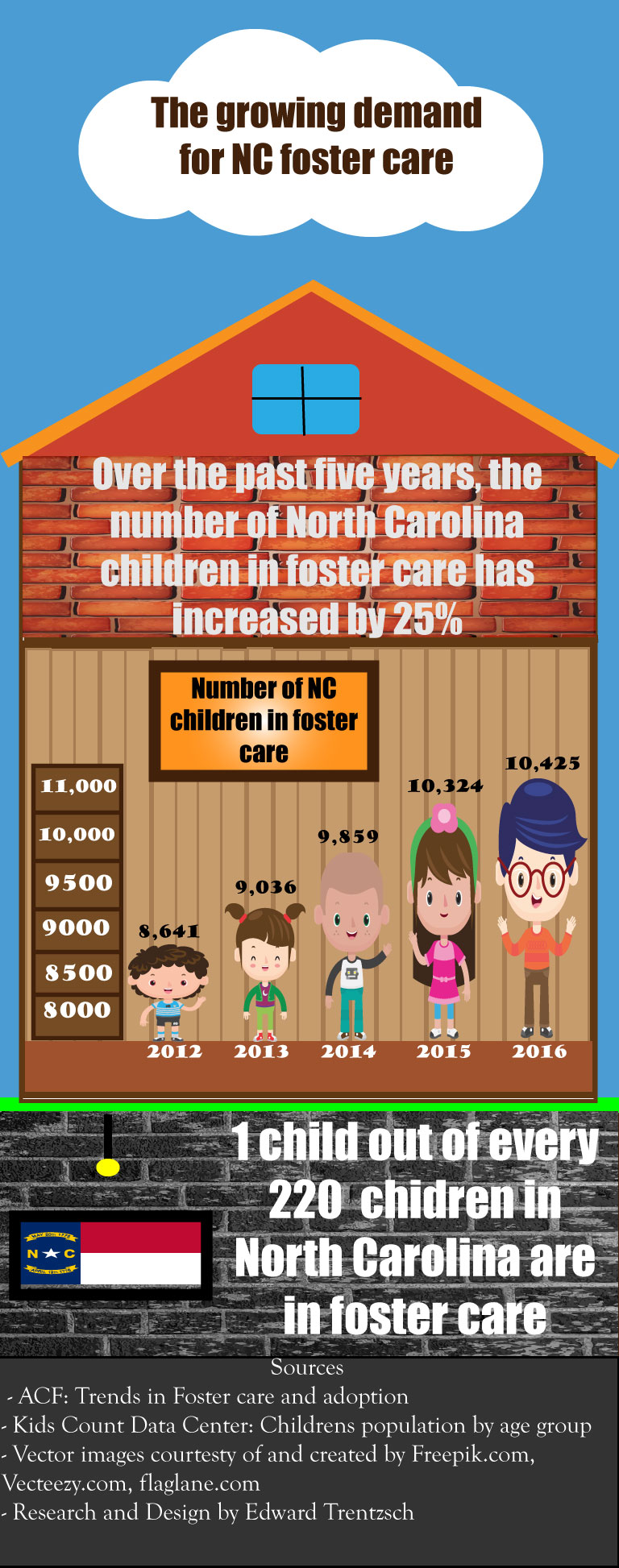As demand for foster care soars, Falcon gives hope for the future


Tucked away in the rural backwoods of North Carolina lies the
diminutive farming town of
 Falcon. With a population of just 258 people as measured by the 2010
US census
(Bureau), Falcon can often seem to be a million miles away from the various
domestic issues that continue to escalate within the state and
country. However, after looking past the infinite fields of cotton
that blanket the ground like snow, it becomes apparent that there is a
different kind of issue that weighs heavily on the minds of those with
close connections in the community.
Falcon. With a population of just 258 people as measured by the 2010
US census
(Bureau), Falcon can often seem to be a million miles away from the various
domestic issues that continue to escalate within the state and
country. However, after looking past the infinite fields of cotton
that blanket the ground like snow, it becomes apparent that there is a
different kind of issue that weighs heavily on the minds of those with
close connections in the community.
Falcon serves as the setting for Falcon Children’s Home, a growing child care facility that strives to offer guidance,support, and safety to the children entrusted to be in their care, many of whom come from broken backgrounds interlaced with tragedy. Founded in 1909, the campus at the children’s home has grown immeasurably throughout the decades and is now officially licensed to serve 109 children. Yet despite the enormous impact that Falcon Children’s Home and other foster care facilities across the state of North Carolina have on society, their future remains uncertain. The demand for foster care in the state of North Carolina has exploded at a tremendous rate during the past decade, with a total increase of nearly 1,784 children from 2012-2016 (ACF). Given the dramatic increase in demand, children homes and other foster care facilities throughout the state have struggled to cope with the influx of children given their already limited resources.
Additionally, the future implementation of the Family First Prevention Services Act has the potential to completely alter the outlook for foster care across the country. According to the Campaign for Children website, the new piece of legislature will aim to “prevent children from entering foster care by allowing federal reimbursement for mental health services, substance use treatment, and in-home parenting skill training”, while also seeking to “improve the well-being of children already in foster by incentivizing states to reduce placement of children in congregate care” (FFCC). On the surface, this bill appears to remedy the issue of foster homes being overwhelmed by funneling resources towards prevention with an emphasis on negating the unstable scenario at home that would necessitate the need for foster care. As a result, a significant amount of federal funding to children homes would be slashed. While the premise of taking children out of foster care so that they can remain with their families is noble, it fails to take into account the ugly realities that often face these children by remaining at their original homes. As discussed by Falcon Children’s Home CEO/Superintendent Joseph Leggett, often the most destructive part of the entire foster process can be:
“once we get to working with that child, many times we see them improve or we see their whole outlook on life and change. And then we know we have to let them go back to the environment they came from”.
Even with the future of foster care shrouded in a dark uncertainty, the overall vision at Falcon Children’s Home to provide a beacon of light to those in desperate need of help has never wavered. Since 2011, Falcon has expanded their ministries to include a Teen Mothers and Babies Program, as well as a private Christian school titled Falcon Christian Academy. Last year, Falcon Christian Academy graduated 13 students, with 10 of these graduates going off to university to pursue a higher education. These new programs to reach people in need were created in addition to the already established Royal Home Ministries, a program designed to offer assistance to teen pregnant mothers in navigating the difficult decisions of pregnancy. While the future remains uncertain, the administration at Falcon Children’s Home remains committed to giving hope for a better future. When asked about what makes Falcon different from any other children’s home, Mr. Leggett replied without a moment of hesitation “we put the children first in everything we do. Not just in policies and procedures, but also in the different things we do to make sure we can meet the kid’s needs”.
Bureau, U. S. Census. American FactFinder – Results. https://factfinder.census.gov/faces/tableservices/jsf/pages/productview.xhtml?src=bkmk. Accessed 10 Dec. 2018.
FFCC-Short-Summary-FFPSA.Pdf. https://campaignforchildren.org/wp-content/uploads/sites/2/2016/06/FFCC-Short-Summary-FFPSA.pdf. Accessed 5 Dec. 2018.
“Trends in Foster Care and Adoption.” Children’s Bureau | ACF, https://www.acf.hhs.gov/cb/resource/trends-in-foster-care-and-adoption. Accessed 28 Sept. 2018.